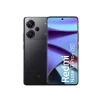It is human nature to assume that one’s experiences are similar to everyone else’s. Living in urban Zimbabwe, it is easy to forget that over two thirds of Zimbabweans live in rural areas and oftentimes their experience living in this country can be worlds apart from their urban counterparts’. For instance, access to electricity in the rural areas is around 19% whilst it’s about 80% in the urban areas.
That right there makes one pause and wonder. Here in the urban areas we are so used to different technologies that have eased our lives and yet most Zimbabweans are in the dark, literally. However, some of the technologies have made lives easier for the ruralites. As payment and remittance services have improved, more and more ruralites are getting access to them and receiving financial assistance from the urbanites easily.
Even in the urban areas, you can see how far we have come when you see the elderly fumbling with their phones, trying to pay for groceries in a supermarket. The transition to these electronic payment methods was not by choice but we have all been forced to accept them. We are not entirely happy with this scenario because of the high charges we have to pay for the priviledge to use these new payment methods.
It is the cash shortages that keep us using the more expensive electronic payment methods. Although using cash is less convenient, most of us would choose that route because of the charges. The cash shortages have proved to be a blessing in disguise for banks as we have noted and it has to be acknowledged that business would have ground to a halt had it not been for the improvements and innovations made in the payments sector.
We are impressed by the progress that has been made in the payments sector. Perhaps if we understood better how the payments sector is set up and the challenges they face, we could better swallow the regular system failures and the high charges. Some of us could come up with their own solutions to challenge the established players as there is room for improvement as you will see.
The Payments Sector in Zimbabwe
Techzim Insights prepared a report on the payments sector in Zimbabwe for just that reason. In the report we explore what the payments sector looks like, considering both the essential players as well as the non-essential. We will seek to understand how payments are being made in the country and see where the opportunity for innovation is – both for private payment service providers and regulation.
We start in the beginning, looking at the history of the sector, the major events that shaped the sector and end by looking at the challenges being faced by the payment service providers and where the room for improvement is.
The Payments Systems Environment in Zimbabwe report is available for sale. If you require a different payment method to acquire the report, send an email to: insights@techzim.co.zw and we will assist you.





4 comments
i honestly wouldn’t say that the cash shortages were a blessing in disguise for banks, the banks were very aware and complicit in causing the situation we are in now.
I think it quite risky for someone making objective or subjective comments on the Payments industry when they are not active participants of the industry, even from a journalistic view. In addition to that you’re trying to get people to pay you for that report. Granted, I have not read the report yet but, If you can’t tell me who are the active players in the Zimbabwean payments industry, current and prospective along with some sort of timelines then this becomes a historical report rather than anything current.
what can he do in Zim. He cant work for nothing. At least he is trying to be innovative.
Expecting objectivity from people involved in (or having direct interests) certain industries seems riskier. Might also be a good idea to consume the product before forming an opinion on it.